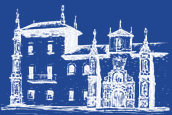Abstract
Critics and readers sometimes unnecessarily limit the scope of what is to be counted as “Basque literature” to texts originally composed in Euskera. In the present study I argue for a hermeneutics of Basque literature that does not seek to identify Basque literature by means of the language of composition, theme, or any particular biographical information about the author. Taking the work of Jorge Luis Borges as a touchstone—and , in particular, his canonical short story, “Pierre Menard, Author of the Quixote”—I sketch a strategy for reading Basque literature from a minimalist perspective that takes the identity of a Basque literary text to be a function of its capacity to read from a Basque perspective, broadly defined.
DOI
https://doi.org/10.18122/B2NH7B
Recommended Citation
Laraway, David
(2013)
"Borges and the Basques: Notes on Reading an Invisible Literature,"
BOGA: Basque Studies Consortium Journal: Vol. 1
:
Iss.
1
, Article 3.
https://doi.org/10.18122/B2NH7B
Available at:
https://scholarworks.boisestate.edu/boga/vol1/iss1/3
Included in
Basque Studies Commons, Latin American Literature Commons, Other Spanish and Portuguese Language and Literature Commons


About the Author
David Laraway is currently the Chair of the Department of Spanish and Portuguese at Brigham Young University, where he has taught and published on a wide range of subjects, including Borges, Latin American poetry, Chilean cyberpunk, and contemporary Basque narrative. He is originally from Boise, Idaho, where his great-grandmother ran a Basque boarding house and was one of the founders of the first organization for Basque women in the United States.
EDUCATION:
ABD, Media and Communication -- European Graduate School PhD, Romance Studies (Hispanic Literature) -- Cornell University
M.A., Spanish -- Brigham Young University
B.A., Philosophy and Spanish -- Brigham Young University